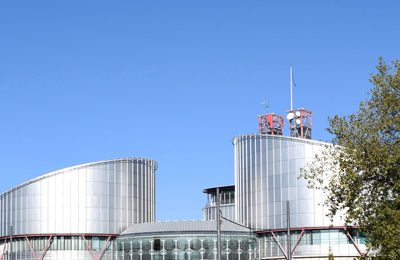Andrew Adonis (What actually happens if we leave the ECHR?) acknowledges that the United Kingdom may well withdraw from the European Convention on Human Rights (ECHR) even if the Conservatives or Reform UK do not head up the next government. If so, we need to have a better understanding of the consequences than he appears to have.
Lord Adonis’s first point is that the immediate effect would be limited because the provisions of the Convention are already “entrenched” in UK law. I am not sure what he means by “entrenched”, but the facts are that the ECHR applies in the UK only because the Human Rights Act 1998 says so. The act can be repealed like any other statute and inevitably would be if we decided to leave the ECHR. It is true, as Adonis says, that at the moment British judges are the guardians of the ECHR, but that is only because the act requires them to apply it and to have regard to the judgments of the European Court of Human Rights in Strasbourg. If the Human Rights Act were repealed, that would change.
The result would depend on what, if anything, replaced the Human Rights Act. The main problem about the ECHR system is not the Convention itself, which lays out the kind of rights that any civilised society should want to have. Most of them have been recognised by English law for many years, in some cases for centuries.
Rather, the problem is the Strasbourg court, which since the 1970s has developed what it calls the “living instrument” doctrine. This has emancipated it from the text of the Convention and turned the court into a legislative body, creating a vast superstructure of additional and expanded rights quite unrelated to anything that the participating states have actually agreed. Decisions like last year’s climate change judgment, which held that the right to privacy of family life, the home and correspondence laid out in Article 8 means that governments must have statutory provisions to achieve net zero by 2050, are grotesque parodies of judicial interpretation. They are also inconsistent with both the rule of law and basic principles of democratic accountability.
The sensible course would be to withdraw from the Convention and re-enact the text of the Convention in a UK statute, with provisions requiring it to be interpreted in accordance with the language, as with any other UK statute. There would also need to be transitional provisions to deal with past decisions of the UK courts. The object would be to retain the legal protection of human rights properly so called, but to exclude the judicial legislation coming from Strasbourg.
Other common law countries such as Canada and New Zealand have proved to be perfectly capable of protecting human rights without an overarching international tribunal to tell them what to do. The UK has independent courts which can do the same. That is why the frequent comparisons with Russia and Belarus—made because they are outside the ECHR—are so intellectually dishonest. Russia and Belarus are totalitarian states. They do not have independent courts.
Adonis concludes with an extravagant fantasy. He says that outside the ECHR a government with a compliant parliamentary majority could commit outrages like sacking judges, deporting British citizens, abolishing jury trials, winding up the BBC, subverting free and fair elections and so on. The truth is that a government with a compliant parliamentary majority could do all these things anyway, whether we are inside or outside the ECHR. This is because the Human Rights Act allows the courts to quash secondary legislation inconsistent with the Convention but does not and cannot invalidate future primary legislation. Future parliamentary legislation would prevail over the act. The only way that we could stop it doing so would be to have a new written constitution which trumps acts of parliament. We do not have one, and there is no prospect that we will have one any time soon.
The good news is that no one is threatening to do any of these terrible things. There is no reason to believe that a parliamentary majority would be compliant enough to approve them, or that the British electorate would vote for such a programme. It is absurd to be trying to retain the ECHR, with its erratic and unpredictable court, as a barrier against a non-existent threat on the assumption that most of our fellow citizens may turn into monsters of prejudice and malice.
As long as we are in the ECHR we have no mechanism for abrogating or amending edicts coming from Strasbourg. With a purely domestic human rights regime, we could have whatever additional rights that we chose to enact, while discarding or amending those that we consider unsuitable for our conditions, or not in the public interest, or for which there is no democratic mandate.










